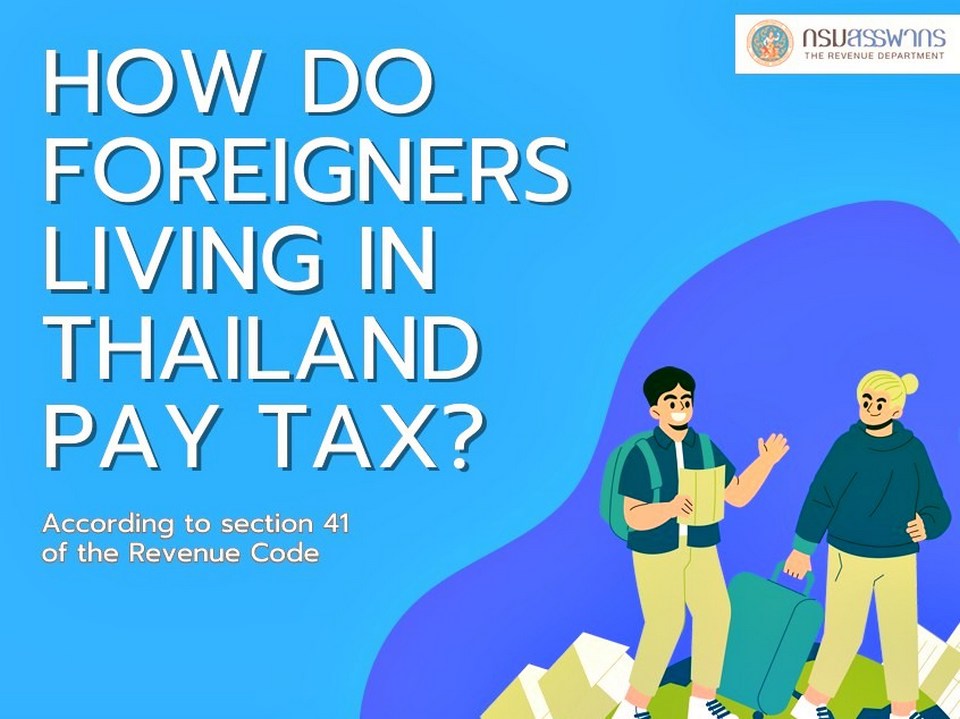
Countless foreign tax residents of Thailand daily search the internet for answers, but ignorance is not bliss. How does the Department of Thai Revenue (DTR) rule to tax remitted income from overseas from the start of 2024 affect me? Do I need to fill in a Thai tax form in the new year 2025 even if I think I do not have assessable income in 2024? How can I obey the tax laws if I can’t find out what they are? Will I be arrested? Meanwhile, the DTR remains inscrutable as the relentless calendar year passes the half-way mark.
To address the void, various scenarios are springing up on the internet and at webinars or meetings of various kinds. Mike Lister, a widely-respected and “advanced member” of the Asean Now popular forum on the subject, has suggested in a personal capacity that the remitted tax rule will be introduced softly at first. Overstretched DTR officials will concentrate on the big fish with large and untaxed remitted income and will leave largely unscathed the little fish such as run-of-the-mill pensioners (unless they are spotlighted for some reason).
If true, it could take several years of semi-implementation before every foreign tax resident is the glum recipient of a tax identification number and the provider of a multi-page, completed PND 90 tax form. The downside of this view is that typical expats may spend the next few years still muddled and fearful about their personal futures. Incidentally, the PND 90 tax form is available in English contrary to some social media warriors, although reports say it will anyway be altered soon. Another reason for waiting.
Another softish approach to DTR was provided in a recent Pattaya Mail article by financial analyst and tax expert Victor Wong. He gave a lot of common-sense advice, such as keeping all your financial documentation in good order and – very importantly – emphasizing that submitting tax forms does not necessarily mean you have anything extra to pay. He also committed himself to the view that, because of double taxation treaties, elderly foreign residents here would not pay more cash in Thailand on previously taxed pensions.
Hopefully, this broad interpretation of double taxation treaties will stand the test of time. It should, however, be noted that the 61 international agreements with Thailand are far from unanimous in scope. For example, the US one insists that social security payments may only be paid in America, whereas the British equivalent covers only “government” pensions and also excludes the state or old-age pension. Moreover, some analysists maintain that double taxation treaties may only give limited cover because exempt income allowances may be more generous abroad than in The Land of Smiles. Thus the international agreement may only give a tax credit for Thailand rather than total immunity here.
All commentators agree that there are so many unanswered questions. Even an obvious matter such as whether use of a foreign (non-Thai) credit card is remitted income, in whole or in part, is the subject of blistering debate on social media. There is also much nonsense out there such as the claim expats will be taxed by Thai banks a uniform 35 percent on foreign remittances or that annual extensions of stay in some immigration offices already require proof of a Thai tax identification number. Like the tale that Adolf Hitler escaped Berlin and retired to a relaxing hill resort in Paraguay, such tales are best regarded as click bait.
The whole issue of taxing more thoroughly Thai or foreign residents was raised by prime minister Srettha Thavisin in the first two weeks after the Pheu Thai election victory last year: he wants more Treasury cash and quickly. The DTR responded with alacrity and, last month, went so far as even to speculate (that’s what it is) that from 2025 all worldwide income would become taxable whether remitted to Thailand or not. Given the Thai government’s ambitious policy to recruit one million wealthy foreigners to Thailand over five years, a rethink is already overdue. The prime minister started this whole ball game but has been silent publicly ever since. He should “come-out” clearly on the tax issue scope, or exempt certain categories, or even delay any move until proper research has been completed. The current silence is truly deafening.








